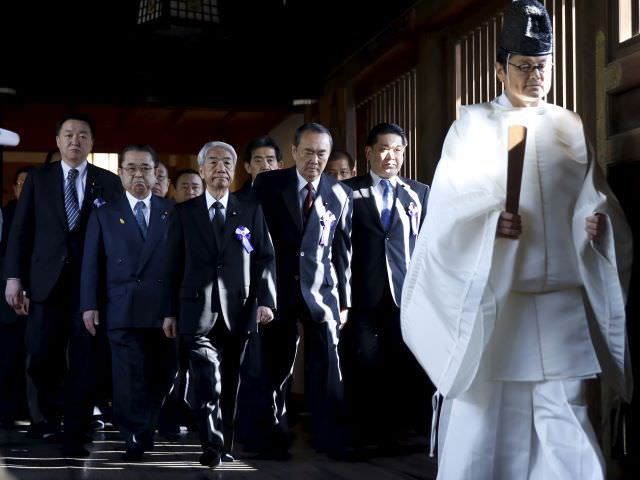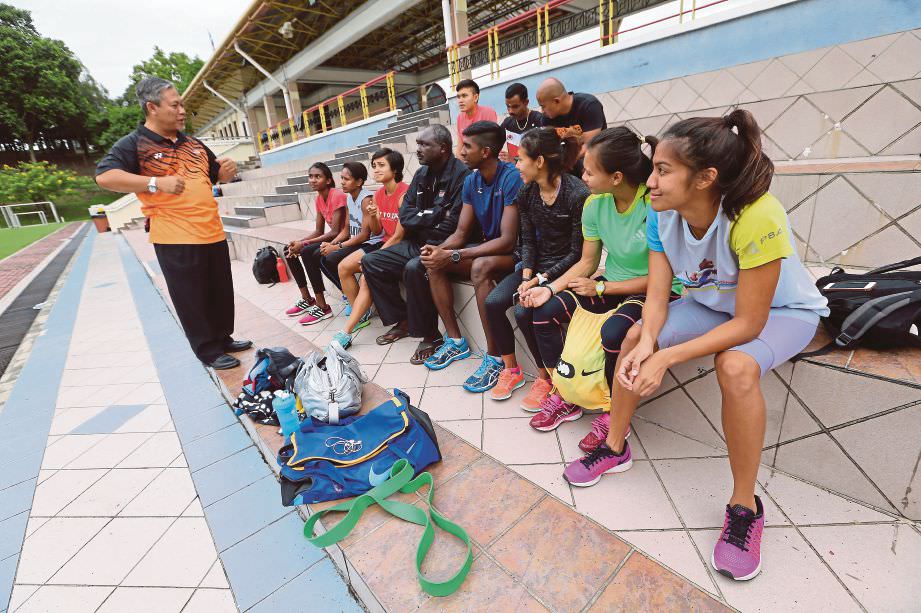TOKYO (Reuters) – Japanese ruling and opposition lawmakers visited a Tokyo shrine on Wednesday to honour the country’s war dead, shortly before Prime Minister Shinzo Abe was due to make an important speech on Japan’s war-time past at an international summit.
Abe’s speech, at the Asian-African summit in Jakarta, will be watched for hints as to whether he wants to dilute past apologies over World War Two, which would not sit well with Japan’s old war enemy and main regional rival, China.
Chinese President Xi Jinping is attending the same Jakarta summit, and Abe has made it clear he wants to meet Xi there.
Wednesday’s offerings at the Yasukuni shrine come a day after Abe himself sent a potted tree as an offering to the shrine. That gesture drew a relatively muted response from Beijing, raising hopes in Tokyo for an Abe-Xi meeting.
Scores of lawmakers in black suits streamed into the shrine under a bright blue sky on Wednesday morning to mark the shrine’s annual spring festival to honour the spirits of Japanese troops killed in war.
Japanese leaders convicted by an Allied tribunal as war criminals are also honoured in the shrine, which is regarded by Beijing as a symbol of Japan’s past militarism.
Sino-Japanese ties have chilled in recent years due to feuds over war-time history, territorial rows and mutual mistrust over Abe’s bolder security stance and China’s military assertiveness.
Relations thawed a little after Abe met Xi for their first summit in Beijing late last year. NHK national television said officials were in the final stages of arranging a meeting between the two later on Wednesday.
China, where memories of Japan’s past military aggression run deep 70 years after the end of World War Two, has repeatedly urged Japan to face up to history.
Abe’s upcoming speech in Jakarta, a speech to U.S. Congress next week and a statement in August marking the anniversary of the war’s end could hold the key to whether the thaw continues, although some experts say Beijing has already decided the time is ripe for a cautious rapprochement.
A Japanese government source has said Abe, who returned to power in 2012, would express remorse over the war in Jakarta but media said he would not apologise.
Abe treads a fine line between conservative political allies who favour visits to the shrine and want him to take a less apologetic stance towards the war, and a desire to improve ties with Beijing and Seoul.
Abe reiterated this week that he would uphold a landmark 1995 apology for Japan’s role in the war by then-premier Tomiichi Murayama, but said he wanted to issue a forward-looking statement in his own words.
(Reporting by Elaine Lies, Linda Sieg and Teppei Kasai; Editing by Mark Bendeich and Paul Tait)-thestar







